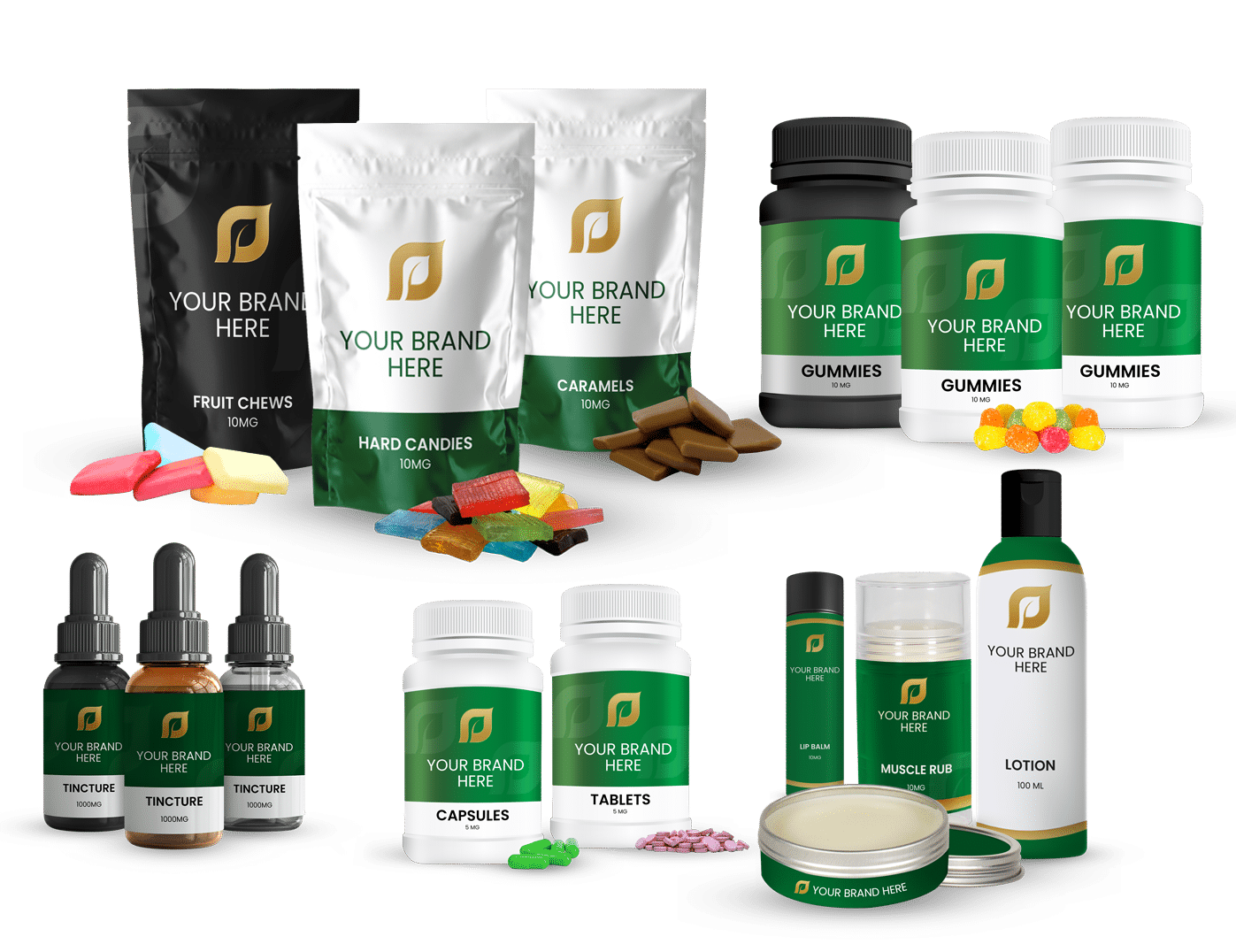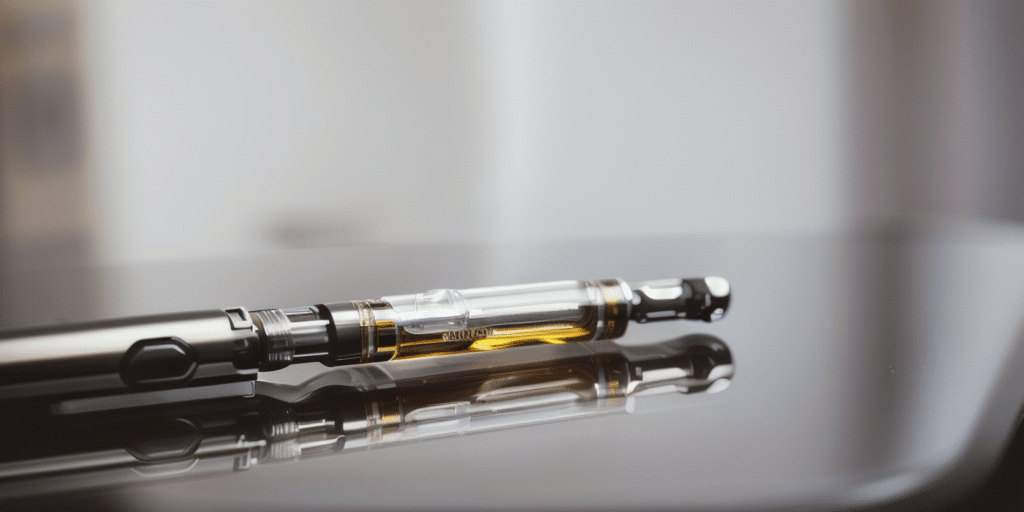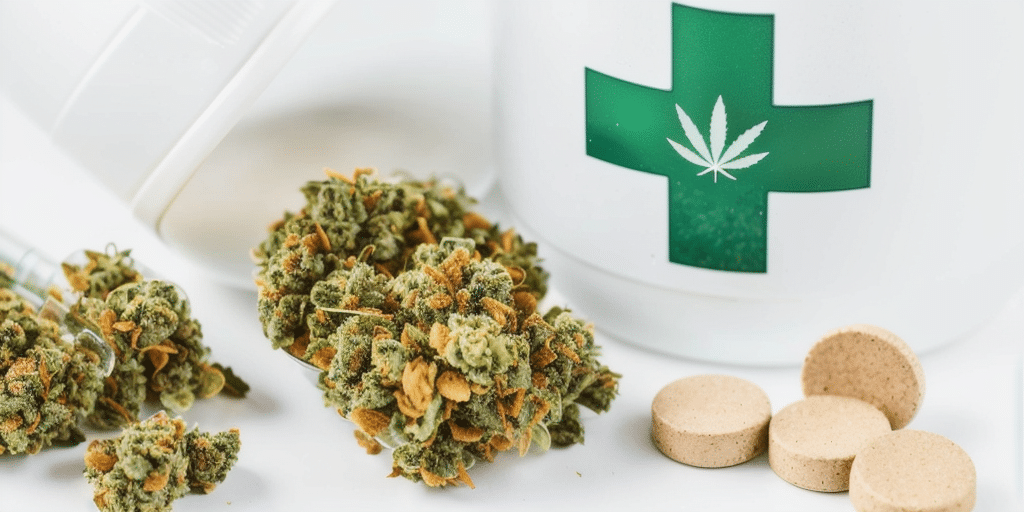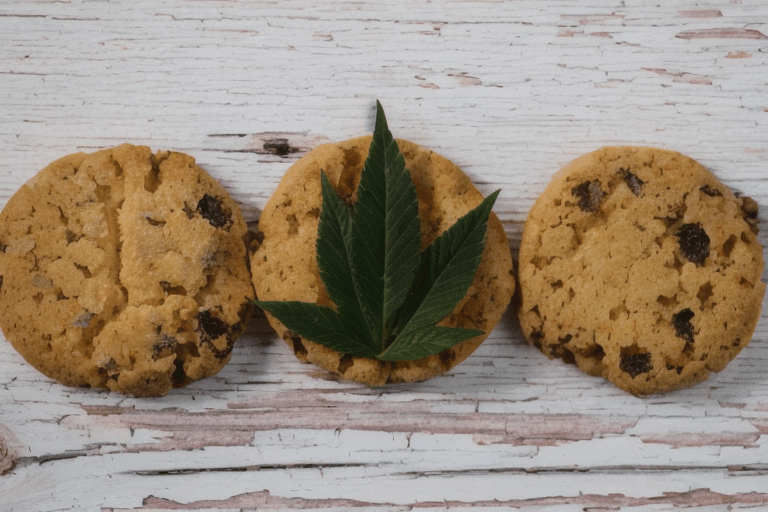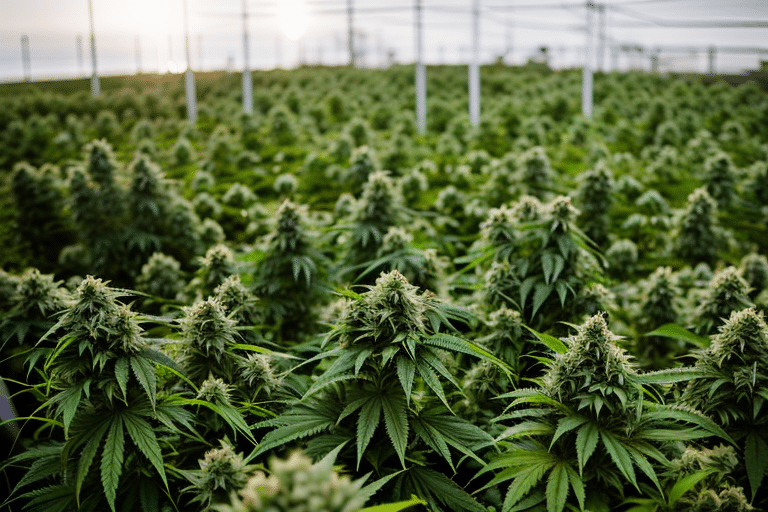Mixing Delta-9 THC and alcohol can lead to heightened side effects, impaired reaction times, loss of coordination, distorted decision-making abilities, increased risk of dependency, and potential long-term consequences on mental and physical well-being.
Table of Contents
ToggleA Tale of Two Intoxicants: Delta-9 and Alcohol
The dangers of polyconsumption, specifically the combination of cannabis and alcohol, include impaired reaction times, loss of coordination, distorted decision-making abilities, and a significant impact on driving abilities.
A Closer Look at Delta-9 (THC)
Enter the world of Delta-9-tetrahydrocannabinol, more commonly known as Delta-9 or THC. This psychoactive compound, found primarily in cannabis, is the ringleader behind the “high” people experience when partaking in marijuana.
The Ubiquitous Presence of Alcohol
Alcohol, on the other hand, has long held its place as a popular social lubricant. From casual drinks to celebratory toasts, alcohol’s mood-altering effects have been embraced by many. However, it’s important to remember that alcohol consumption can lead to a myriad of short-term and long-term consequences.
Now imagine combining these two powerful substances – an act known as polyconsumption. In recent years, this dangerous mix has come under scrutiny due to its potential for hazardous outcomes, such as impaired reaction times, loss of coordination, and distorted decision-making abilities.
When Two Intoxicants Collide: Polyconsumption in Colorado
In January 2022, the Colorado Division of Criminal Justice released a report that examined over 26,000 cases involving impaired driving in the state during 2019. The findings were alarming: 45% of tested drivers had consumed multiple substances.
The most common duo? You guessed it – alcohol and Delta-9-THC. Moreover, among those with detected Delta-9-THC levels, an astonishing 68% also had another substance present – with alcohol once again taking the lead.
According to data from the Insurance Institute for Highway Safety, one-third of drivers across the United States who indulge in both alcohol and marijuana admit to getting behind the wheel within two hours of consumption. These individuals are prone to taking greater risks than those who only consume marijuana. As we approach the end of 2021, impaired driving has already claimed 247 lives on Colorado roads.
The Perilous Path of Mixing Cannabis and Alcohol
The combination of cannabis and alcohol is a treacherous one with potentially fatal consequences.1 In the following sections of this blog post, we’ll delve into the heightened side effects, dangers of dependence, startling statistics surrounding impaired driving, and the overall impact on mental health when these two intoxicants join forces. Stay tuned for a comprehensive exploration into the world of polyconsumption and its potential repercussions.
The Perilous Dance of Delta-9 and Alcohol
The consequences and risks associated with combining Delta-9 (THC) and alcohol include intensified effects, impaired cognitive function, potential harm to unborn children, increased dependency, and long-term health complications, making it crucial for individuals to understand these dangers to make informed decisions about substance use.
A Symphony of Intensified Effects
Imagine Delta-9, the psychoactive maestro behind cannabis (also known as THC), joining forces with alcohol, another mind-altering virtuoso. The result is a powerful duet that can overwhelm the cognitive concert hall of our minds. This dissonant harmony endangers not only the listener – or user – but also those within earshot, as our ability to think and act clearly is compromised.
But the ripples of this perilous dance extend far beyond the immediate experience. Picture an unborn child whose developing motor skills could be impaired by prenatal cannabis exposure.
Add alcohol to the mix during pregnancy, and you might find a restless toddler struggling with hyperactivity in their early years. So it’s crucial that we recognize the risks involved in this intoxicating waltz and take steps to avoid its harmful embrace.
The Ballroom of Dependency
When Delta-9 and alcohol share the stage, their performance doesn’t merely crescendo in intensity – it leaves its audience craving more. This dependency on both substances can have lingering effects on a person’s life, casting shadows on relationships, career opportunities, and mental well-being.
The prospect of being entwined with both substances simultaneously raises significant concerns when we consider the long-term toll each can take independently. For example, constant alcohol consumption may ravage one’s liver, while extended cannabis use has been tied to memory lapses and mental health complications.
As the curtain falls on this cautionary tale, it’s vital for individuals to comprehend the hazards interwoven with mixing Delta-9 and alcohol. This potent combination can amplify side effects and elevate dependence risks, potentially leaving lasting scars on users’ lives. By acknowledging these dangers and making educated decisions about substance use, we can shield ourselves and others from harm’s way.
A Grave Reality: Unraveling the Startling Numbers Behind Impaired Driving
Combining alcohol and cannabis negatively impacts driving performance by amplifying the absorption of THC and increasing consumption, with the challenge of establishing safe consumption guidelines arising from varying individual responses to these substances.
A Nation’s Dilemma: Revelations from the Insurance Institute for Highway Safety
Driving under the influence of intoxicating substances, such as alcohol or cannabis, is a problem that plagues our nation, as evidenced by numerous studies. The perilous partnership of alcohol and cannabis creates hazardous situations on the road, escalating risks for drivers and pedestrians alike.
The Perilous Partnership: When Alcohol Meets Cannabis
Mixing alcohol and cannabis significantly impairs driving performance, amplifyies the absorption of THC, and decreases cognitive functioning, making it crucial to avoid combining these substances and maintain sobriety when operating a vehicle.
The Blame Game: Assessing Crash Culpability
Scientific research indicates that mixing alcohol and cannabis can be especially detrimental when it comes to driving. Alcohol has the power to amplify the absorption of Delta-9-tetrahydrocannabinol (THC), marijuana’s primary mind-altering constituent. Furthermore, people who indulge in both substances simultaneously tend to consume greater quantities of each, setting themselves up for possible dependence on one or both while significantly impairing their ability to drive safely.
A 2013 study unveiled that the fusion of THC and alcohol consistently hindered driving performance, particularly during nocturnal simulations.2 Introducing alcohol to a minimal dosage of THC resulted in a 21% decrease in driving simulator scores, while merging alcohol with a larger dose of THC led to a 17% slump in performance.
Navigating the Maze: Evaluating Impairment Levels
Determining the precise degree of impairment caused by amalgamating alcohol and cannabis is considerably more complex than one might assume. Surprisingly, a 2011 study demonstrated that individuals who consumed solely alcohol experienced poorer cognitive functioning compared to those who only ingested THC. In addition, combining these two substances could cause diminished cognitive abilities and alterations in brain structures such as the hippocampus.
Complicating matters further is the fact that different people may respond uniquely to various mixtures of alcohol and THC. This makes it challenging to establish definitive guidelines for safe consumption levels. Consequently, the most prudent approach is to abstain from mixing these substances altogether, particularly when planning to operate a vehicle.
The startling statistics on impaired driving resulting from the combination of alcohol and cannabis ought to serve as an urgent call to action for everyone. With the growing ubiquity of both substances, it is imperative that we educate ourselves and others about the perils of blending them and the significance of maintaining sobriety while behind the wheel.
A Delicate Dance: The Interplay of Delta-9-THC and Alcohol on Mental Health
In the realm of social indulgences, the combination of alcohol and cannabis has long been a popular choice. But what happens when these two substances meet in the body? How do they affect our mental health? Let’s take a closer look at this intricate dance between Delta-9-THC and alcohol.
A Dangerous Tango: When Judgment and Cognition Falter
Delta-9-THC, the most well-known psychoactive compound in cannabis, can create an intricate interplay with alcohol that may lead to unexpected consequences. This tango begins when one consumes cannabis before sipping on an alcoholic beverage, as it may cause a slower absorption of alcohol into the bloodstream.3 This delay can deceive us into thinking we’re not intoxicated, potentially leading to overconsumption.
Conversely, should we indulge in alcohol prior to partaking in cannabis, our blood may retain higher peak levels of THC for longer durations. This heightens the intensity and duration of the high.
The dance between Delta-9-THC and alcohol can lead to a precarious scenario where judgment falters and sensation-seeking behavior takes center stage. Our cognitive functions suffer as memory, decision-making, and problem-solving abilities dwindle. Moreover, each substance alone impairs our ability to drive; combine them, and the task becomes nearly insurmountable.
The Dark Waltz: Mental Health Problems Worsen
As we delve deeper into this dance between alcohol and cannabis, research reveals that overconsumption and dependency are potential partners. Habitual heavy drinking has been associated with deteriorating mental health, while excessive cannabis use may hasten the appearance of mental health issues and psychiatric illnesses.
Adding edibles to this mix creates an even more potent concoction – our liver transforms THC into 11-Hydroxy-THC, a substance up to nine times stronger than its predecessor. This formidable blend may further exacerbate mental health problems.
It’s crucial to recognize that the regular mixture of these substances can amplify their effects on mental health. Alcohol is known to expand blood vessels in our digestive tract, allowing for faster and increased absorption of substances, including THC. This combination heightens the risk of experiencing “greening out,” which manifests as nausea, dizziness, vomiting, and headaches.
The dance between Delta-9-THC and alcohol can have dire implications for our mental health. Being aware of these potential dangers empowers us to make informed choices about our indulgences. Remember, moderation is key – it’s always prudent to exercise caution when it comes to preserving our mental well-being.
The Intriguing Science of Mixing Delta-9 and Alcohol
In the world of mind-altering substances, there’s a fascinating interplay between Delta-9-THC, the psychoactive compound found in cannabis, and alcohol. While the scientific community has only just begun to unravel the complexities of this interaction, we can still glean some valuable insights from the research conducted thus far.
The Art of Timing: Weed before Alcohol vs. Alcohol before Weed
The order in which one consumes Delta-9-THC and alcohol can significantly influence how these substances interact within our bodies. Though our understanding is still limited, it appears that combining these two intoxicants can produce a more potent effect from each.
A Potent Cocktail: The Impact of Drinking Before Smoking
As we delve deeper into the effects of mixing alcohol and CBD (a non-intoxicating cannabis compound), we must consider factors like the quantity consumed and the presence of THC in CBD products. When one drinks alcohol before smoking cannabis, THC may interact with the alcohol, depending on the amount consumed. This interaction can potentially result in a more intense and longer-lasting high.
CBD products derived from hemp are legally allowed to contain up to 0.3% THC. However, certain concentrated hemp CBD products have been found to possess levels between 1 to 4 milligrams of THC. To ascertain the THC content in a CBD product, consult its certificate of analysis (COA), which is typically available on the manufacturer’s website.
It’s essential to remember that CBD products are not regulated by the FDA, with the exception of Epidiolex—a prescription drug prescribed for specific seizure disorders. As such, it’s prudent to purchase CBD with minimal THC content to avoid potential interactions between alcohol and THC.
When it comes to consuming alcohol responsibly, moderation is key. Experts recommend one drink per day for women and two for men. Mixing alcohol with cannabis can amplify each substance’s effects, possibly leading to undesirable side effects such as drowsiness, impaired coordination, and in rare instances, vomiting.
While research on the mixing of Delta-9-THC and alcohol remains limited, it’s clear that this combination can produce a more powerful and longer-lasting high. It’s crucial to be mindful of the potential risks and side effects associated with combining these substances, particularly when taking into account factors like consumption levels and THC content in CBD products.
A Cautionary Tale: The Unexpected Consequences of Mixing Delta-9 and Alcohol
“Greening out” refers to the uneasy and disoriented feeling that can occur when combining cannabis and alcohol, and it can be prevented by consuming the substances cautiously, avoiding simultaneous or close consumption, and understanding one’s limits.
Unraveling the Mystery of Greening Out
Picture this: you’re at a social gathering, and the mood is lively. Music plays in the background as friends laugh and enjoy themselves. You indulge in a drink or two, and someone offers you a joint.
Without much thought, you take a puff, only to find yourself feeling queasy and disoriented shortly after. This unsettling sensation is known as “greening out,” an all-too-common yet rarely discussed side effect of combining cannabis and alcohol.
Piecing Together the Puzzle: Symptoms and Prevention
To truly understand greening out, let’s first examine a study that delved into the effects of mixing low doses of ethanol (0.1 and 0.2g/kg) with THC (2.5mg). The study brought together 11 participants with an average age of 25, all with varying degrees of experience using cannabis.
As the researchers observed these individuals, they noted that THC not only dampened their enthusiasm but also increased feelings of drowsiness. Furthermore, THC appeared to hinder their cognitive abilities – a troubling sign for those who might not be aware of the combined effects of alcohol and cannabis.
Surprisingly, the study found no evidence of a synergistic relationship between low doses of ethanol and THC. However, it did reveal an important lesson – even at low levels, mixing these substances can bring about unwanted consequences.
So how can one prevent greening out? It starts with exercising caution when consuming both substances. Avoid partaking in them simultaneously or within a short time frame.
If you do decide to indulge in both, pay attention to the order in which you consume them – some suggest that drinking before smoking may heighten your chances of greening out. Understanding your limits and practicing responsible consumption habits will go a long way in minimizing the risk of negative side effects.
Greening out serves as a cautionary tale – a reminder of the importance of responsible consumption and awareness when it comes to mixing alcohol and cannabis. By being mindful of potential risks and exercising caution, you can enjoy your social gatherings without the unwelcome surprise of greening out.
Do you need custom private label Delta 9 products produced for your cannabis business?
SEE WHAT WE CAN DO
Do you need custom private label Delta-9 products produced for your CBD business?
SEE WHAT WE CAN DO
A Delicate Balance: Combining Delta-9 and Alcohol During Pregnancy
In the miraculous journey of pregnancy, the developing fetus is uniquely sensitive to its environment. It’s crucial for expectant mothers to be mindful of their habits, as they can have a lasting impact on their child’s well-being.
The Hidden Risks: Prenatal Cannabis Exposure and Motor Development
Delta-9-THC, the primary psychoactive compound in cannabis, has become a topic of concern when it comes to prenatal exposure. When combined with alcohol during pregnancy, the consequences can be severe.
Prenatal exposure to cannabis has been linked to compromised motor development in offspring, leading to issues such as delayed milestones, impaired coordination, and weakened muscle strength.
A Dangerous Duo: Combined Prenatal Exposure and Hyperactivity in Male Offspring
The troubling effects of combining Delta-9-THC and alcohol during pregnancy extend beyond motor development. It’s been discovered that this mixture can also result in hyperactivity among male offspring.4 While high doses of alcohol alone were found to increase aggression in participants, the addition of Delta-9-THC seemed to further exacerbate this behavior.
Interestingly, a high dose of Delta-9-THC alone did not provoke aggressive behavior; rather, it produced a mild suppression effect on aggression. This revelation indicates that combining Delta-9-THC with alcohol during pregnancy could amplify hyperactivity and aggression in male offspring – a compelling reason for expectant mothers to abstain from both substances.
As we continue to unravel the complex interplay between Delta-9-THC and alcohol during pregnancy, our understanding grows stronger. By recognizing the risks associated with combining these substances, we empower pregnant women to make informed decisions that safeguard their unborn children’s futures. In doing so, we nurture healthier generations yet to come.
Unraveling the Mystery: CBD and Alcohol Interaction
The presence of THC in some CBD products, when mixed with alcohol, can increase the potential side effects and risks such as impaired driving, heightening the importance for users to be aware of these dangers and make informed decisions about their substance use.
The THC Connection: A Surprising Twist in CBD Products
CBD, or cannabidiol, has garnered praise for its non-psychoactive qualities, meaning it doesn’t produce the high typically associated with marijuana. However, a surprising twist lies in the fact that some CBD products may contain trace amounts of THC (tetrahydrocannabinol), the psychoactive component of cannabis.
Studies have found that even lower levels of THC when paired with alcohol, could still cause impairment. So, what happens when we mix these CBD products with alcohol? The story takes an intriguing turn, as this combination might mirror the effects of blending THC and alcohol.
A Collision Course: The Side Effects of Mixing CBD and Alcohol
Mixing CBD and alcohol can lead to a plethora of potential side effects. Combining cannabis and alcohol dramatically heightens the risk of being involved in a fatal crash compared to using either substance independently.
Alcohol levels are consistently linked to increased culpability in crashes. A study analyzing 10,748 French motor vehicle fatalities found that crashes linked to alcohol outnumbered those tied to cannabis by tenfold.5 Experimental studies have demonstrated that functional impairment (which reaches its peak an hour after smoking) lags behind THC blood levels (which hit their zenith within minutes and rapidly decline thereafter).
As our journey through the world of CBD and alcohol interaction comes to an end, we must remember that while CBD products containing trace amounts of THC may not be as hazardous as high-THC cannabis, it remains essential to comprehend the potential side effects and risks when mixing these substances with alcohol. By understanding these risks, individuals can make informed decisions regarding their substance use and ensure they stay safe behind the wheel.
The Curious Case of Aggression: Booze vs Buzz
The connection between alcohol and aggression is undeniable. At some point in our lives, we’ve either heard the stories or witnessed first-hand how excessive drinking can transform an individual into a raging beast. In recent years, trends like Dry January and Sober October have gained traction, prompting many to seek non-alcoholic alternatives for a night out without the risk of morphing into their own version of the Incredible Hulk.
The Sugar Maple Solution: A Modern Approach to Socializing
Enter Sugar Maple, a Wisconsin bar that has taken note of this growing demand for booze-free beverages. This forward-thinking establishment now offers a full menu of non-alcoholic choices, featuring cannabis derivatives as an enticing add-on. This ingenious adaptation is thanks to both the increased interest in non-alcoholic options and a loophole within the 2018 federal Farm Bill that legally defines products with less than 0.3% delta-8 and delta-9 THC as hemp.
Delta-9-THC: Unraveling Its Unexpected Role in Reducing Aggression
Delta-9-THC, one of over 100 cannabinoids derived from the cannabis sativa plant, is recognized for its psychoactive effects. But what’s lesser known is its potential to counteract aggression. At Sugar Maple, each cocktail contains a mere 5 milligrams of Delta-9 THC, meticulously added by bartenders using medical syringes to ensure precision.
As more individuals gravitate towards non-alcoholic options, it’s thrilling to see establishments like Sugar Maple adapt by catering to their customers’ desires for safer, enjoyable experiences. High doses of alcohol may trigger aggression and potentially dangerous situations, but delta-9 THC presents a surprisingly serene alternative for those seeking a buzz without the booze.
The Final Word
The dangers of combining Delta-9 (THC) and alcohol include impaired judgment, slowed reactions, and potential long-lasting mental well-being effects; promoting responsible consumption involves spreading awareness about these risks and encouraging informed decision-making for the safety of all.
The Perils of Intoxication Behind the Wheel
As we’ve meandered through the many layers of this discussion, we’ve unveiled the powerful and perilous effects of blending Delta-9 (THC) and alcohol on one’s mental and physical faculties. This concoction proves especially treacherous when it comes to operating a motor vehicle, giving rise to clouded judgment, lethargic responses, and a general decline in cognitive prowess.
It’s of paramount importance for individuals to grasp the significance of remaining clear-headed behind the wheel – not solely for their own welfare but also for ensuring the safety of fellow travelers.
Spreading Wisdom on the Dangers of Combining Delta-9 and Alcohol
Enlightenment is our most potent weapon in counteracting the hazards posed by mixing Delta-9 and alcohol. By spreading knowledge about the perils inherent in this potent cocktail, we can curb its prevalence and foster an atmosphere of responsible consumption.
To truly understand these dangers, one must appreciate the distinction between imbibing weed before alcohol versus indulging in alcohol prior to partaking in weed, recognize the telltale signs of “greening out,”; and acknowledge the potential long-lasting effects such a combination might have on one’s mental well-being.
It is imperative for each and every one of us to be mindful of the risks associated with intertwining Delta-9 (THC) and alcohol. Through education and judicious choices, we can collectively foster a safer environment – be it navigating our streets or savoring a cozy evening at home with companions. Stay vigilant, stay informed, and always ponder deeply before intertwining these two potent substances!

